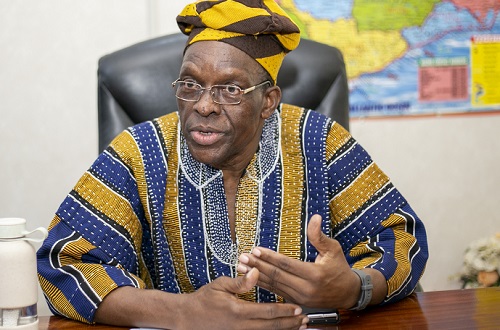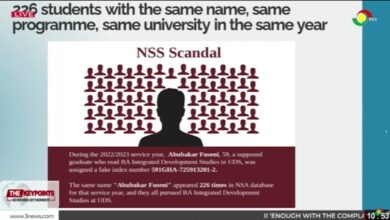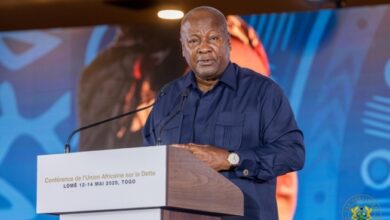Were Circumstances Beyond the Speaker’s Control?

On October 6, 2025, Ghanaians were met with an unusual announcement from the Speaker of Parliament, Rt. Hon. Alban Sumana Kingsford Bagbin. In a formal rejoinder, the Speaker indefinitely postponed the resumption of the Third Meeting of the First Session of the Ninth Parliament, which had earlier been scheduled for October 14. Citing only “circumstances beyond my control,” the Speaker left the public with more questions than answers. Two days later, on October 8, he issued a revised notice, fixing October 21 as the new date for resumption. While the procedural authority of the Speaker to summon Parliament is not in doubt, the opacity surrounding this deferment raises critical questions about parliamentary accountability, executive-legislative relations, and the responsiveness of Ghana’s democratic institutions.
Ordinarily, the Speaker’s decision to summon Parliament is preceded by consultations with both the Majority and Minority leadership. This practice ensures that the business of the House is not only procedurally sound but also politically feasible. The abrupt reversal of the October 14 date suggested that consensus was either not achieved or that unresolved concerns emerged during these consultations. In Ghana’s parliamentary practice, such concerns often related to the sequencing of government business, the preparedness of committees, or the political sensitivities surrounding particular bills. The Speaker’s vague reference to “circumstances beyond his control” therefore pointed less to logistical hurdles and more to political undercurrents that remain unarticulated.
The timing of this postponement was particularly troubling given the weight of legislation that awaited parliamentary attention. Among the most pressing are the repeal of L.I. 2462 and the enactment of L.I. 2501, both of which bear directly on the regulation of Ghana’s mining sector and the fight against illegal mining (galamsey). These instruments are not mere technicalities; they represent the legal scaffolding upon which the state’s environmental and economic governance rests. Alongside these are the Ghana Investment Promotion Authority Act and the Security and Intelligence Agencies Bill, both of which carry implications for investor confidence, national security, and institutional reform. To defer parliamentary business at such a juncture is to delay decisions that touch the very core of Ghana’s developmental trajectory.
The Speaker’s postponement also reopened a familiar critique of Ghana’s political class: that Parliament found unity and urgency only when matters of members’ own welfare were at stake. On issues of salaries, allowances, or ex gratia, the House has historically demonstrated remarkable bipartisan efficiency. Yet when the nation’s environmental integrity, investment climate, or security architecture hangs in the balance, inertia was about to prevail. This disjuncture between private interest and public duty often undermines the legitimacy of Parliament as the people’s representative institution.
What made the current episode even more perplexing was the numerical strength of the governing party. With an overwhelming majority in Parliament, the government should, in principle, have had little difficulty in marshalling its legislative agenda. Even in the absence of the Minority, the Energy Sector Levy (Amendment) Bill, 2025, introducing a GH¢1 levy on petroleum products, was approved. That the Speaker was unable to summon MPs for proceedings despite this majority suggested deeper fissures, whether on conditions of service, in the alignment of executive and legislative priorities, or the willingness of the Minority to cooperate on critical bills. Whatever the case, the indefinite postponement, however brief, signalled that parliamentary procedure is not merely a matter of dates and notices but a reflection of the balance of power, inconclusive negotiation, and sometimes, stalemate.
Ultimately, the Ghanaian people deserve more than procedural opacity. They have entrusted their representatives with the authority to deliberate and decide on matters of national importance. To postpone that mandate without a clear explanation is to erode public trust in democratic governance. If Parliament is to remain the fulcrum of Ghana’s constitutional order, it must not only exercise its powers with transparency but also demonstrate that its delays and decisions are guided by the public interest rather than political expediency or parochial interests.
The October 6 postponement may appear as a minor procedural hiccup, now resolved with the October 21 resumption date. Yet, in its silence, it reveals much about the fragility of consensus, the weight of pending legislation, and the uneasy dance between political actors in Ghana’s Ninth Parliament. For a democracy that prides itself on accountability, the lesson is clear that the people deserve not only representation but also candour.
Credit- IMANI’s Critical Analysis of Governance and Economic Issues October 6-11, 2025





